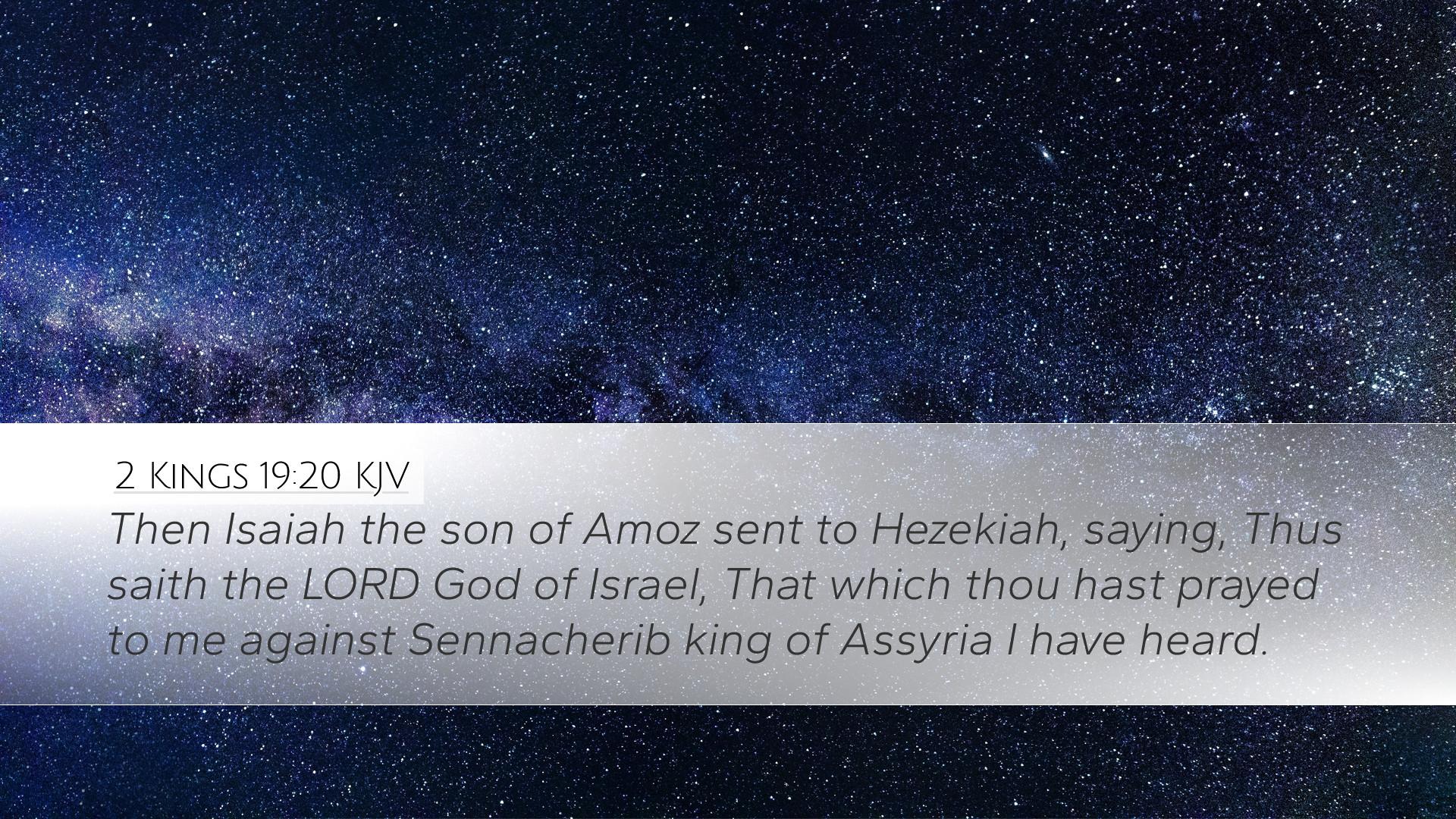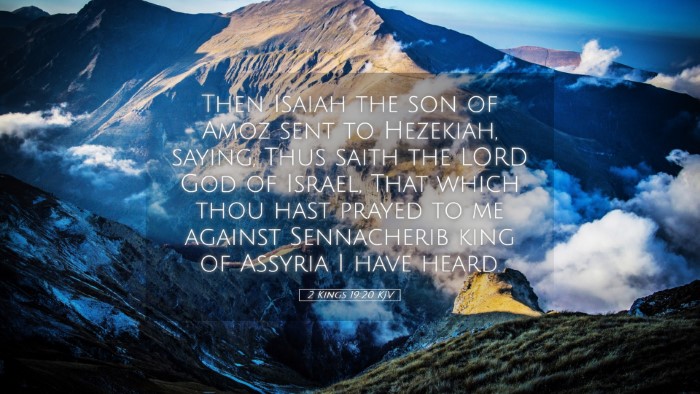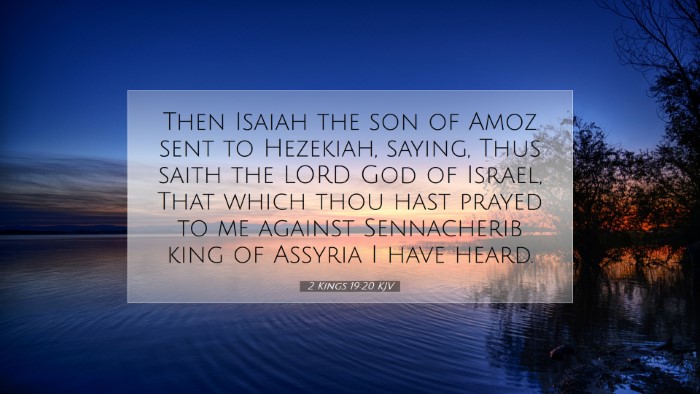Commentary on 2 Kings 19:20
In this profound moment of Scripture, found in 2 Kings 19:20, we encounter a pivotal narrative within the broader tapestry of Israel's history. It depicts the response of the prophet Isaiah to King Hezekiah's earnest prayer regarding the impending threat from Sennacherib, king of Assyria. This integration of faith, divine revelation, and historical context invites deeper reflection, essential for pastors, students, and theologians alike.
Contextual Background
As we delve into the text, it is critical to understand the surrounding circumstances. Hezekiah faced a daunting crisis as Sennacherib laid siege to Jerusalem, threatening complete destruction. His prayer, found earlier in the chapter, was one marked by humility and desperation. He recognized his dependence on God, a theme central to Isaiah's message.
Isaiah's Prophetic Response
Isaiah opens his reply with a declaration that emphasizes God's awareness and acknowledgement of Sennacherib's blasphemy. The opening phrase, “Thus says the LORD,” underscores God's authority and intention to act on behalf of His people. This is a crucial reminder of God's sovereignty in the face of human threats.
Insights from Matthew Henry
Matthew Henry remarks on the nature of God’s communication through Isaiah. He notes that God does not merely speak in response to Hezekiah's prayer but rather sends a direct revelation indicating that He is aware of both the threats posed by Assyria and the spiritual integrity of Jerusalem. Henry emphasizes that God's response serves as an assurance to Hezekiah and the inhabitants of Jerusalem that their plight is not overlooked.
Albert Barnes' Perspective
Albert Barnes, in his commentary, highlights the importance of the Lord's immediate response contrasted with the apparent silence of the Assyrian king's threats. He suggests that God's answer to Hezekiah showcases both His power and His care for His people. Barnes suggests that the specificity of the prophecy enhances the credibility of God's message, illustrating divine omniscience and omnipotence in dealing with nations and leaders.
Adam Clarke's Analysis
Adam Clarke delves into the theological implications of the verse. He argues that this divine communication is a testament to God's eternal vigilance over Israel. Clarke comments on the significance of God fortifying His people against both spiritual and physical siege, thus reflecting a broader theme of divine protection throughout the narrative of Israel's history. His interpretation emphasizes the need for faith in God's promises during trying times.
Theological Implications
This verse not only reflects a historical incident but also resonates with theological truths relevant to contemporary believers. Here are several key takeaways:
- The Sovereignty of God: The response from God through Isaiah underscores the ultimate authority of God over nations and kings, echoing the consistent biblical pattern of divine sovereignty over human affairs.
- The Importance of Prayer: King Hezekiah’s prayer serves as a model for how believers should approach God in times of despair, emphasizing reliance on divine intervention.
- God's Faithfulness: God’s response to Hezekiah’s plea showcases His unwavering faithfulness to His covenant people, reminding scholars and pastors of the enduring nature of God’s promises.
- The Nature of Divine Revelation: God communicates His intentions clearly, showing that He is not distant but actively involved, familiar with the cries of His people.
Application for Pastors and Theologians
For pastors and theologians, this passage serves as a rich source for sermons and teachings. The themes of divine sovereignty, the power of prayer, and God’s faithfulness can be woven into various teaching contexts. It offers encouragement in pastoral counseling, demonstrating the efficacy of seeking God in crisis. Additionally, it reminds leaders of their role in directing congregational prayer and reliance on God's power amidst challenges.
Conclusion
In summary, 2 Kings 19:20 presents a multifaceted view of God's interaction with His people during a critical moment in Israel’s history. Drawing from the commentaries of Matthew Henry, Albert Barnes, and Adam Clarke, we uncover layers of meaning that emphasize the importance of prayer, God’s sovereignty, and His enduring commitment to His people. This rich discourse reminds us that God hears our cries, knows our circumstances, and responds with perfect knowledge and care.


